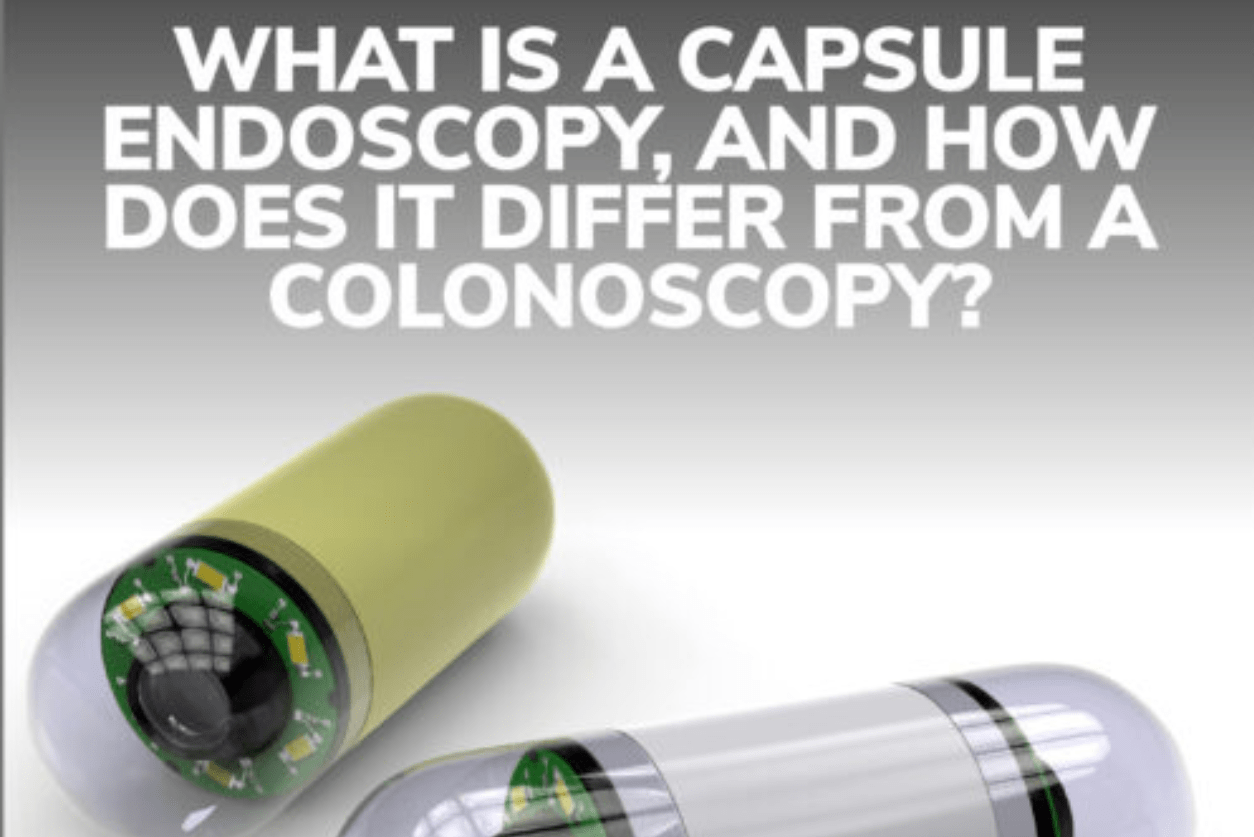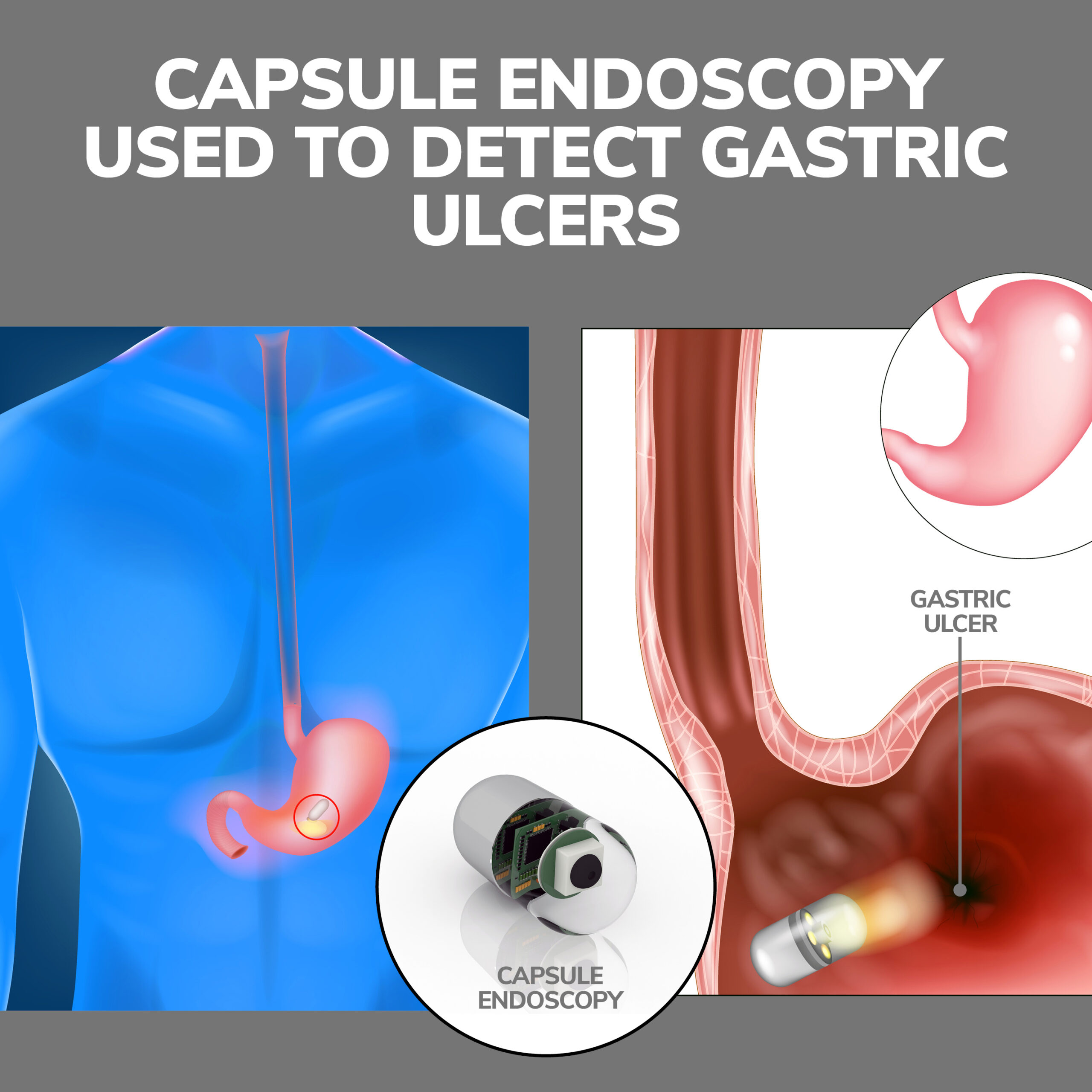
What is a Capsule Endoscopy, and How Does it Differ from a Colonoscopy?
Your digestive system carries out the critical duties of breaking down the foods you consume, absorbing the vitamins and minerals needed to execute many life-sustaining functions, in addition to producing and eliminating potentially hazardous waste materials.
Any illnesses affecting the organs in this network could place your health in serious jeopardy. Scientific development has led to several diagnostic tests physicians use to examine deep inside the gastrointestinal tract and identify these problems. One such tool is known as capsule endoscopy.
Capsule Endoscopy Overview
Capsule endoscopy enables doctors to examine your digestive system using a small wireless camera embedded in a capsule-like structure that you swallow.
Types Of Capsules Used in the Procedure
Physicians use several types of capsules for diagnostic purposes. These components vary in:
- Battery power.
- Image production quality.
- The number of cameras a capsule can hold.
- Recording time.

Some devices collect information without recording apparatuses. They must be collected once they exit your body. Data-transmitting capsules are more commonly used because data can be transferred immediately.
Why Is Capsule Endoscopy Employed?
Doctors use capsule endoscopy to examine the stomach or small intestine.
For example, physicians use the procedure to identify the cause of bleeding in the small intestine. It may also be used to locate growths like polyps or tumors and confirm the diagnosis of digestive disorders like ulcers, forms of inflammatory bowel disease, and immune system problems like celiac disease.

Preparing For Capsule Endoscopy
Preparation typically involves several key steps, such as:
- Medication Disclosure – Certain medications can interfere with camera picture quality. You must tell your doctor about all of the over-the-counter and prescription drugs you regularly take.
- Fasting – You will likely be required to stop eating or drinking for at least 12 hours before the exam. The small intestine needs to be as clear as possible for the capsule to produce viewable images. Your doctor might even prescribe a laxative medication a day or two preceding the test to ensure that your bowels are sufficiently empty.
- Limiting Or Avoiding Strenuous Activity – Engaging in excessive exercise or other strenuous activities might force the capsule to move, causing damage capable of skewing data or producing cloudy images.
- Not Smoking – You will be required to stop smoking 24 hours before the procedure. Cigarettes cause digestive system irritation that could produce inconclusive images.
- Wearing Loose-Fitting Clothes – You will need to wear loose clothing to enable sensors to fit inside them. Sensors are devices that collect data doctors use to render diagnoses.
You must follow your doctor’s directions to the letter. Failure to do so might require procedural rescheduling or retesting.
The Procedure
Before beginning the procedure, you will be fitted with the necessary medical equipment.
Electrodes are connected to a sensor array on your chest and abdominal region and a sensor belt around your waist. Neither apparatus hurts but may prove somewhat uncomfortable.
Once the sensors are affixed, you will be fitted with a recording device. This is roughly as large as a calculator and is placed into a harness draped across your chest and shoulder.
After equipment calibration comes capsule activation. When the capsule is ready, you will be given water to swallow the device. The capsule is roughly the size of a vitamin and coated to make it easier to swallow.
When the capsule is safely swallowed, you leave the medical facility or doctor’s office and conduct your usual business. You will be cautioned to avoid engaging in any type of strenuous activity, quickly bending, lifting heavy objects, and above all, avoiding magnetic fields like those present inside security scanning locations found in places like government buildings and airport checkpoints.
Monitoring Data
You will periodically need to check the recorder’s progress. Before leaving the hospital or medical facility where the equipment was attached, your doctor will provide instructions on determining if the device is operating correctly.
Resuming Your Diet
Your doctor will provide thorough instructions detailing when you can resume your diet. You will typically not be permitted to consume anything for the first four hours after swallowing the capsule, only water after six hours, liquids like chicken broth and juice, or a light snack after eight hours.
Returning The Equipment
You will expel the capsule in a bowel movement within a day or two following ingestion.
If the device is data-transmissible, you will not need to return it to the examining doctor. If the diagnostic tool was equipped with internal data storage, you will need to cleanse and bring it back to your doctor. The sensors and recorder are usually returned to your doctor later during the same day as the procedure’s administration.
Learning The Results
Your doctor will need time to review the images. You will most likely know the results within one to two weeks.
How Is Capsule Endoscopy Different from A Colonoscopy?
Colonoscopy exams differ from capsule endoscopy. Routine colonoscopies are not able to correctly examine the small intestine.
Potential Risks
Complications are highly uncommon when trained technicians and physicians administer the procedure.
The most significant risk is bowel obstruction. Capsules could become lodged inside narrowed or blocked regions of your small intestine. This usually does not occur unless you have an underlying condition causing intestinal closure, like inflammatory bowel disease or abnormal growths. When constriction happens, it usually results in symptoms such as nausea, vomiting, bloating, and abdominal pain.
Reaching Out to Us
Our practice began more than 15 years ago and has emerged as one of the leading gastroenterology practices in central Florida. We perform a host of diagnostic procedures using state-of-the-art equipment in a friendly, comfortable, and inviting atmosphere where patient care is always a top priority. Contact us today!